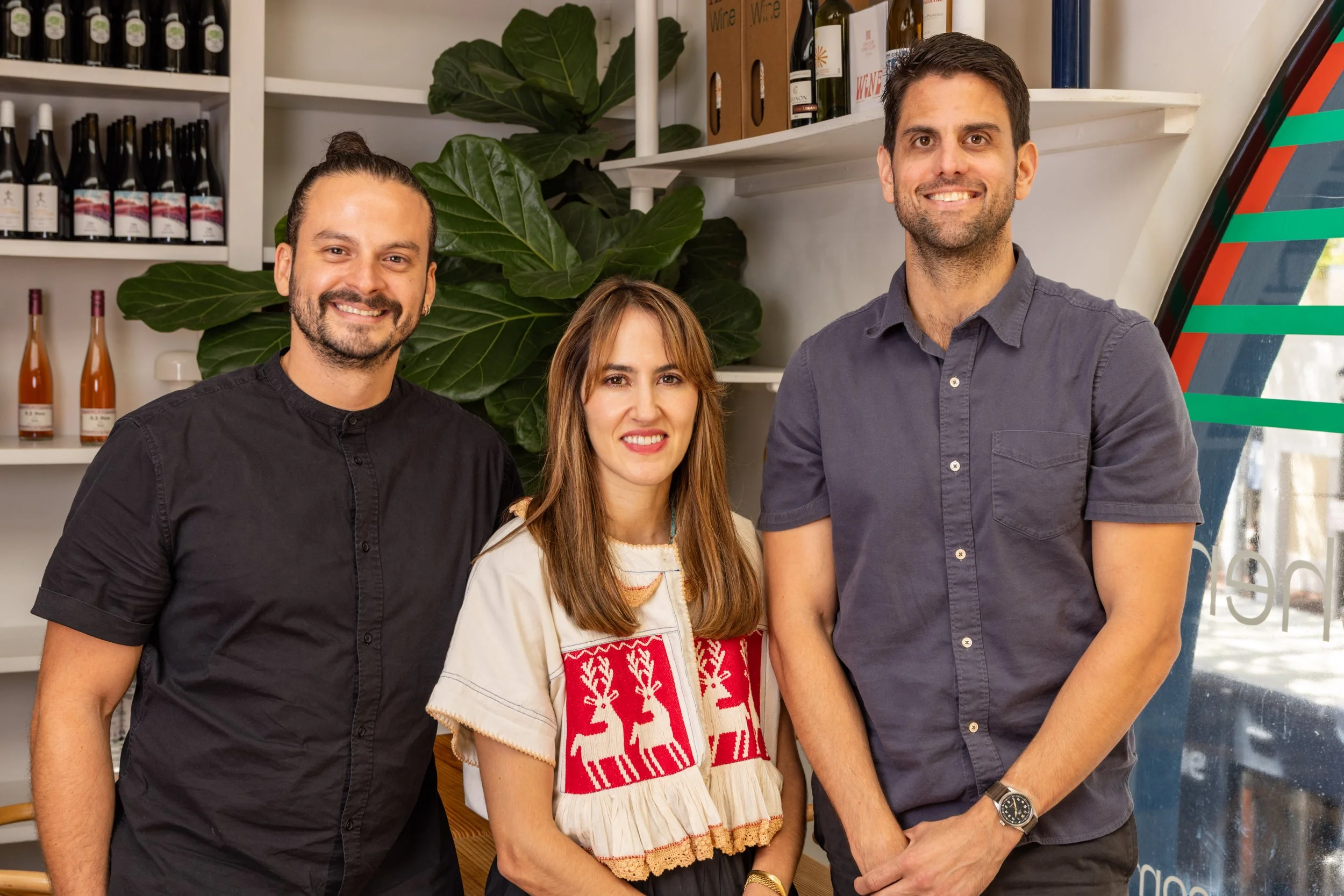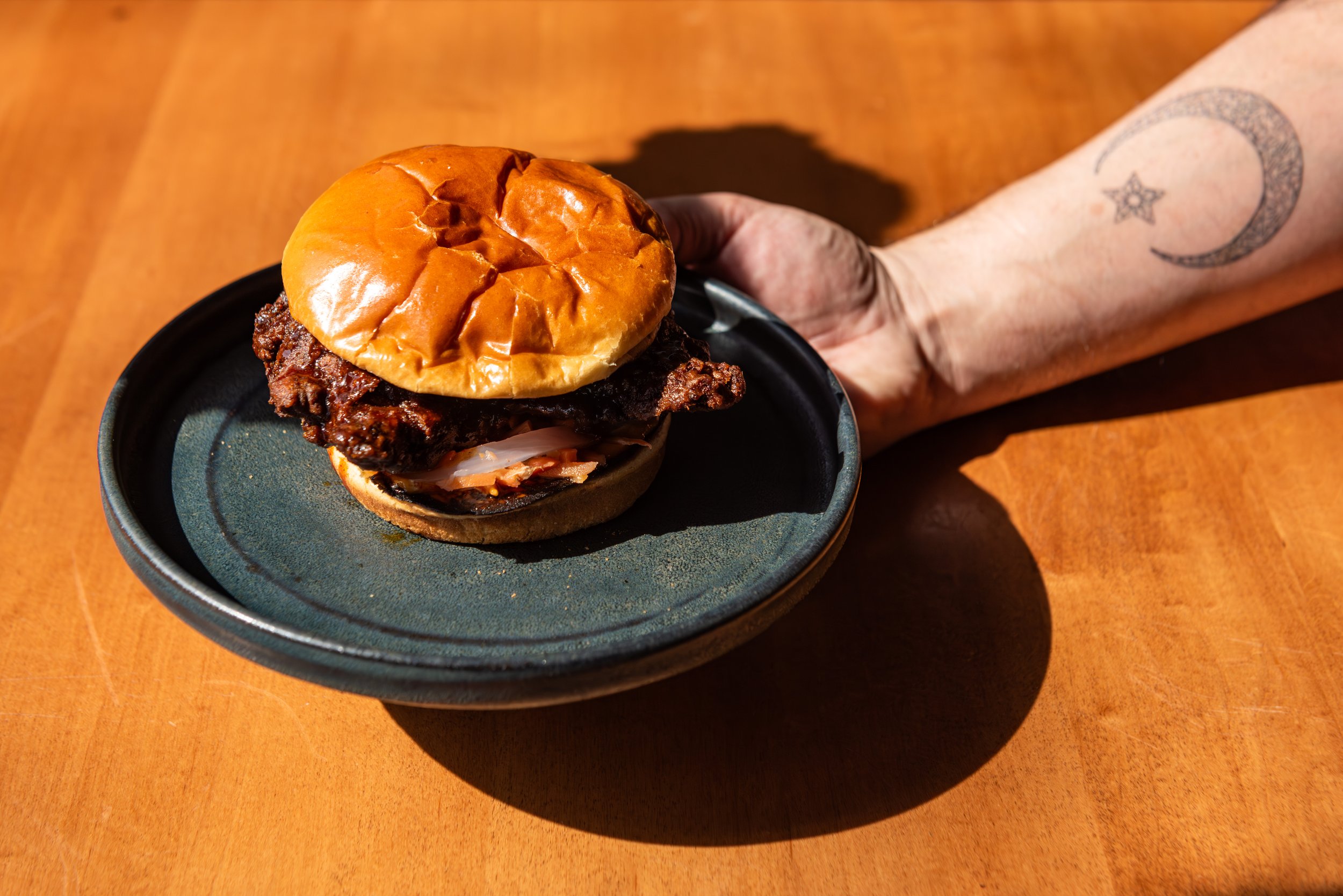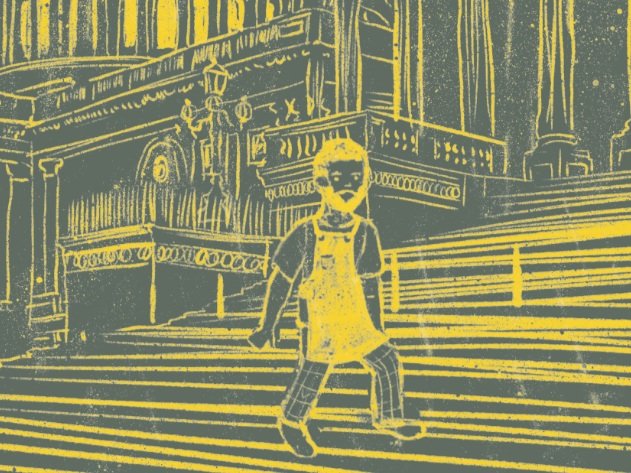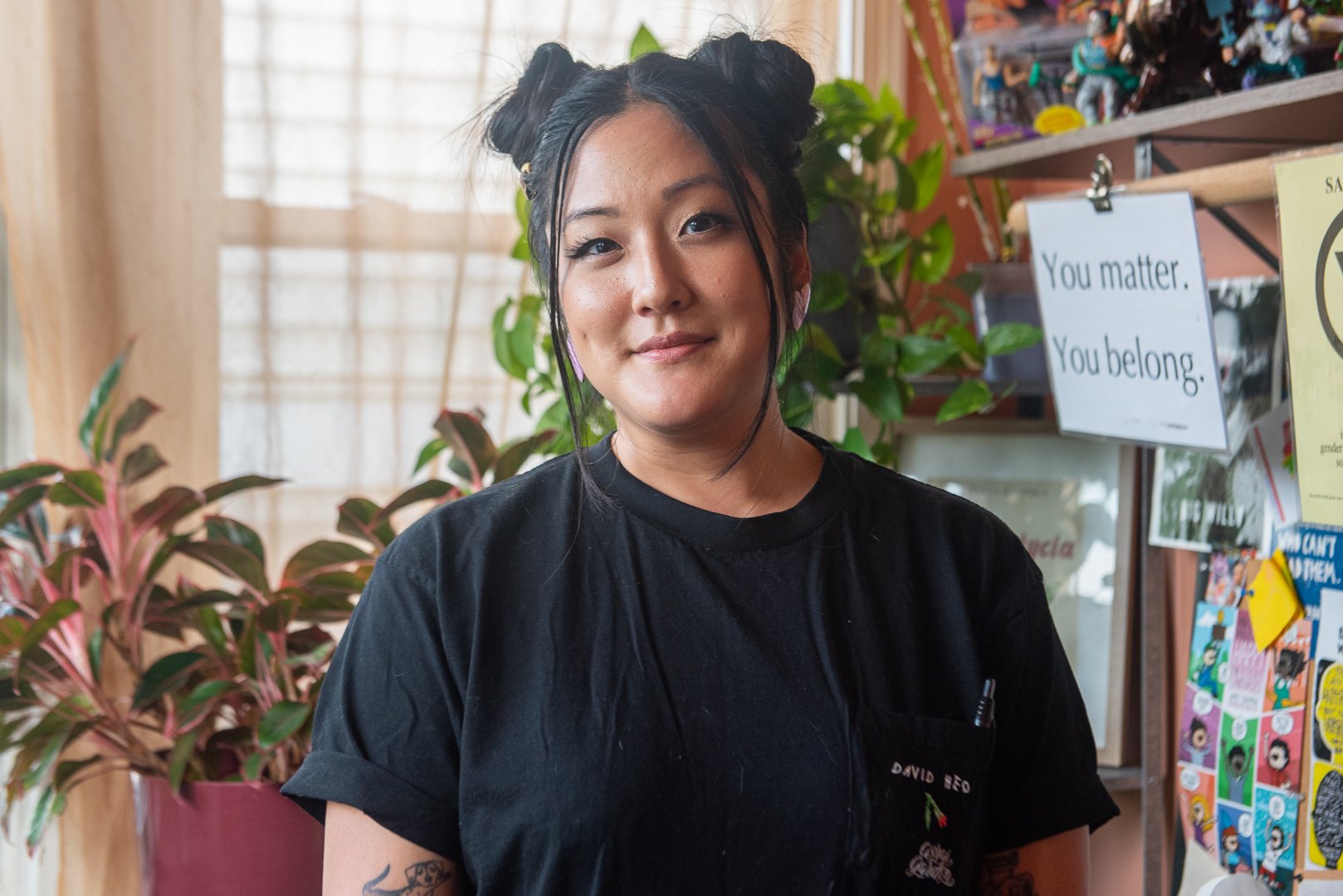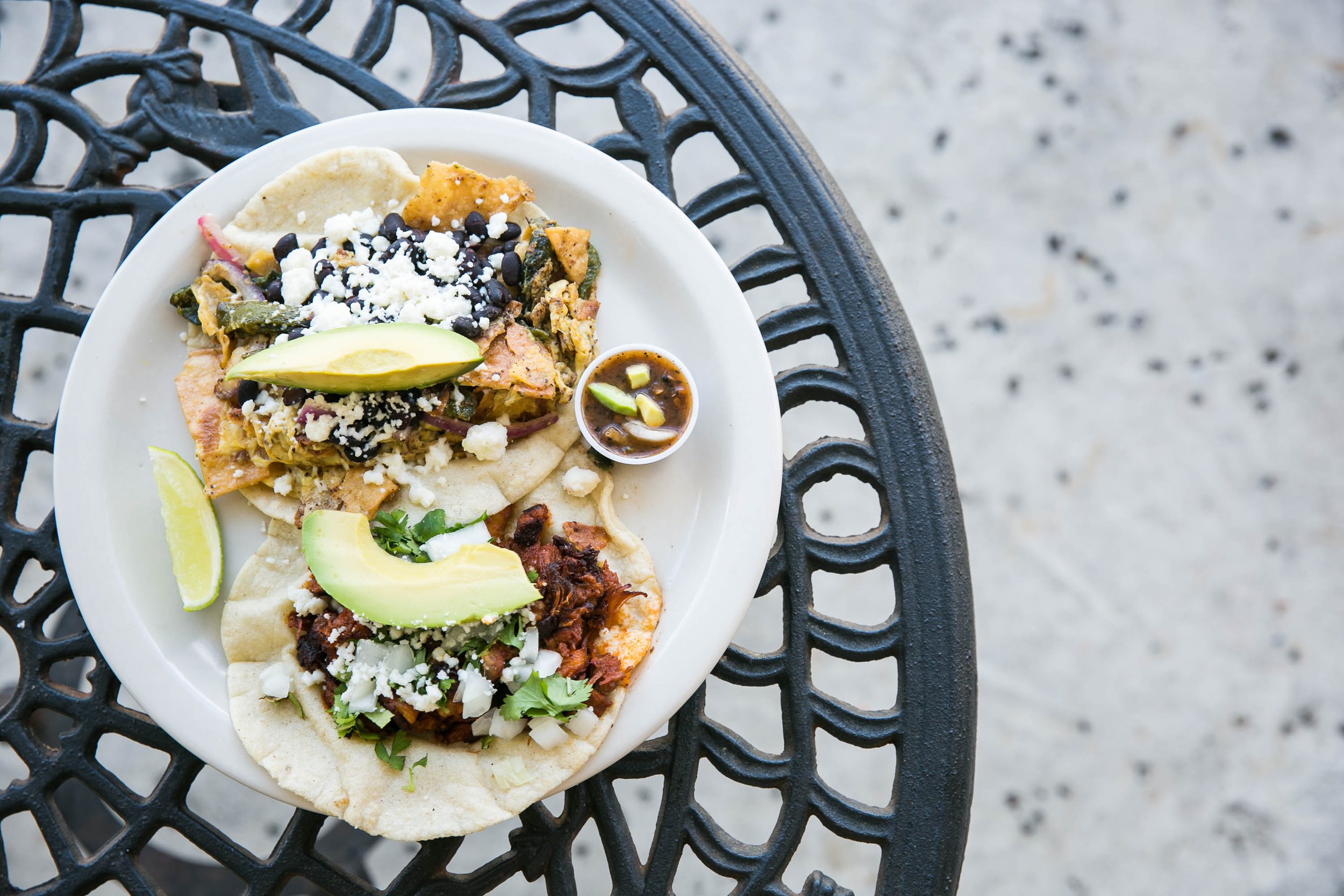Second Act City
In Chicago, the hospitality industry is a draw for people looking for a fresh start.
Hospitality professionals build their careers in restaurants for a practically infinite number of reasons. Some are drawn to the frenzied energy of service, others to the bold flavors of the kitchen, but for a large number of chefs, bartenders, sommeliers, and artisans, food and beverage wasn’t always the plan. In Chicago, we met with a growing number of industry pros who found a home in hospitality after careers in finance, the arts, professional sports, and everything in between.
For Dan Koester, all it took was the right book (and a healthy dose of rejection) to inspire him to make a change. In 2010, Koester moved to Chicago to pursue a career as an actor, going out on countless auditions while serving on the side. When the roles dried up and callbacks became less frequent, he decided to take a break from the stage. “I was like, I’m just not going to think about acting, not audition for a year, see if I miss it or not,” he says. “Turns out, I didn’t miss it.”
Pivoting away from the spotlight, Koester applied to graduate school for social work, but when he got the rejection letter in the mail, he realized that wasn’t what he truly wanted either. “I think I wanted to bake,” he says, it was the “first time I said it out loud.” He turned to something his sister-in-law bought him: the Tartine cookbook. “It blew my mind and grabbed a hold of me in a way nothing had since acting.” From there, he learned to bake sourdough and picked up shifts at Stan’s Donuts and Labriola before enrolling in culinary school. “I went to the French Pastry School—it’s only a six month program—which for me, as someone pushing 30, was a quick way to get in and out.” Now, through his bakery Dan the Baker, Koester runs pop-ups across Chicago and sells his pastries wholesale to coffee shops and cafes.
The path to success in a new industry, for many career changers, relies on their ability to apply skills from their previous experiences. When Lauren Reese transitioned into the world of coffee, her past life as a photographer provided valuable and surprising perspective as she learned the trade. Before roasting, Reese worked at a rental house in Chicago, shot documentaries and portraits, and did some food photography before tackling archival work at a museum.
By the time she and her husband, Elmer Fajardo Pacheco, started to build their business, Anticonquista Café, Reese realized that “coffee roasting is a lot like film photography. When processing film, the three components are temperature, time and—what they call—agitation. Coffee is the same: temperature, time, and airflow, which is a sort of agitation. I’m very science-minded, which drew me into photography in the first place. That chemical reaction. I felt that same feeling with coffee.”
Ethan Lim, unlike Reese, grew up around hospitality, but needed to take a step away from the industry. He wanted a fresh point-of-view, one he knew he wouldn’t find at his parents’ restaurant. “I just sort of tried to be a sponge and absorb as much as I could,” says Lim of his time outside of hospitality. “There are certain aspects that allowed me to have this larger, macro vision of how to approach an operation.” He left Chicago after dropping out of high school and felt drawn to fashion and retail. In Los Angeles, he sold shoes and luggage. In San Francisco, he worked as a personal shopper and stylist. Eventually, Lim moved back to Chicago and took a job as a car salesman, which “became an eye-opener in terms of understanding products that define a brand.”
Towards the end of his time as a salesman, Lim enrolled in culinary school, but took with him a strong appreciation for business. “The core foundation of what they had preached was that the product always sells itself,” he says. At Hermosa, Lim believes “the formula is simple. It doesn’t need to be flashy or controversial. What we do is connect with people, create memories for people.” Thanks to his time away from restaurants, Lim draws parallels between hospitality and sales, approaching service with a sensitivity for the guest while finding new ways to make them feel more at home.
For over a decade, Mike Satinover worked in market research, starting as an analyst before climbing up the corporate ladder. But back when he was in college, studying business and marketing, he also studied Japanese. “I went to the University of Wisconsin-Madison because it had one of the best Japanese programs in the country,” says Satinover. During college, he spent a year living in Sapporo, Hokkaido, Japan, the birthplace of miso ramen. “I eventually made an independent study about ramen,” says Satinover. “I went to Aji no Sanpei. They let me watch, take videos, and talk to everybody. It was crazy because ramen usually has so many secrets.” When he returned to Chicago, he felt compelled to start making ramen and soon developed a following online.
Eight years later, Satinover hosted his first ramen pop-up in New York. “It was so popular,” he says. A slew of events in Chicago and pop-ups in Atlanta, Nashville, and Cincinnati followed. “If I had free time, it was ramen time. I’d be at work at my desk launching the tickets. Eventually, I was like I need to make the switch. I [saw] myself doing this for the rest of my life.” While still working his nine-to-five, he started to look for a permanent space in Chicago, but stayed on with the company until his restaurant was ready to go.
Throughout the city, the supportive hospitality community and devoted diners give room for new industry entries and self-starters to find their footing. For Satinover, “I felt like the kind of ramen shop I wanted wasn’t [in Chicago]. It struck the right balance, but also I grew up here and wanted to be here. So, putting down roots where I wanted, that was the easiest decision to make.” His restaurant, Akahoshi Ramen, opened in Logan Square in the fall of 2023.
The Chicago hospitality community—and its cooperative, inviting spirit— made it easy for Zubair Mohajir to say goodbye to his past life as a financial analyst. “Being Indian, you are expected to be a doctor, an engineer, something with a briefcase. Professional. I didn’t fit the bill,” he says. When the market crashed in 2008, he pivoted and, inspired by childhood memories in the kitchen with his mother and grandmother, turned to cooking. “I was 28. This was the chance to choose something I wanted to do. Not what my parents wanted me to do.” His passion turned to purpose and he restarted his career in professional kitchens. Mohajir has since opened Lilac Tiger, The Coach House, and, most recently, Mirra.
Whether a few months, years, or decades into a totally different career, hospitality remains an industry that’s open to anyone and everyone, especially in Chicago. “It’s the openness of Chicago and the fact that it’s just a hardworking city,” says Pak. Now, “people I recognize come into the restaurant and I’m like wait, which chapter of my life are you from?”
“My last corporate job was at a small boutique marketing firm,” says Margaret Pak, but “it was not a good fit. I got let go at that job. It was devastating.” Afterwards, Pak wasn’t sure what to do next. For nearly 13 years, she had worked in financial services and pharmaceuticals doing data analytics, but when she was laid off, she found herself at a crossroads. Unexpectedly, Pak became the sales consultant for a small ketchup brand and, through that role, was connected with Chef Won Kim of Kimski. “He was doing pop-ups,” she says, and “I went to an event he did. He made [these] cool deviled eggs. I started peeling the eggs because I didn’t want to just stand there. I was like, this is really cool.”
Months later, a chef friend of Pak’s told her to make a list of all the places she would want to stage before she made a decision about culinary school. “Kimski was at the top of my list,” she says. Pak worked her first day of prep at the restaurant in March 2017 and went full-time by May. Encouraged by Kim, she started a pop-up in 2018 and opened the first iteration of Thattu in a food hall in May 2019. “For someone like me that had come from ‘the other side,’ not being in the industry, I [still] saw other chefs and restaurateurs coming to our food hall. They wanted to eat it too,” says Pak. “It was industry supporting industry.”







